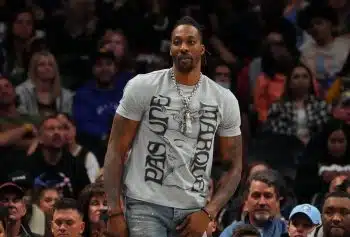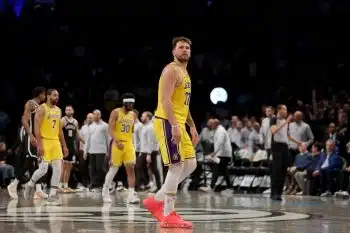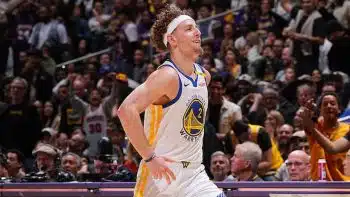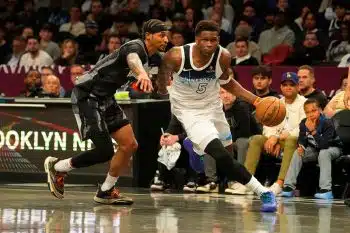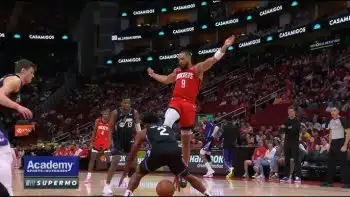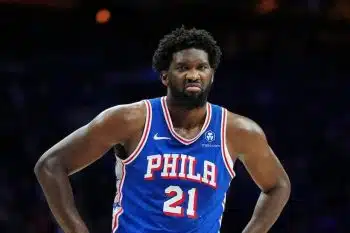NBA
NBA AM: Adam Silver on One-And-Done, Labor Relations
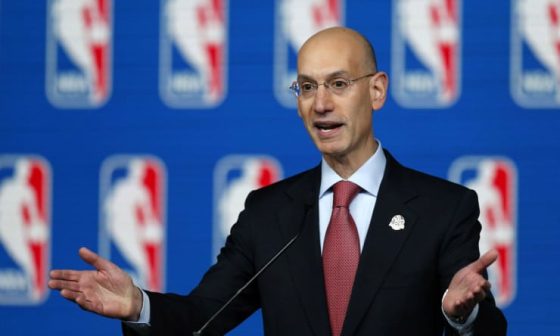
NBA Commissioner Adam Silver visited Staples Center on Tuesday night to announce that the 2018 All-Star Game will be held in Los Angeles.
He also took some time to talk about the one-and-done rule, labor relations, the NBA draft lottery and “Stickum.”
Since taking over as Commissioner, Silver has made it clear that he wants to raise the age requirement to 20 years old (rather than the current one-and-done college rule). However, he knows that will be tough to do with the National Basketball Players Association pushing back.
“It’s an incredibly complicated issue,” Silver said. “There are all kinds of life factors for these players that they need to balance.”
“I recognize that there are two sides to this issue,” he continued. “I’m very sympathetic to the players and their families in terms of they’re feeling [that] they’re at the point in their lives at 18 that they should be able to come directly to the NBA.”
Still, the owners prefer players to wait an additional year before joining the league.
“I’m making a business decision for the NBA, which is to the betterment of the league and the roughly 430 jobs we have in this league,” Silver said. “We feel that these players are better off having more time developing as players before they enter into this league.”
To make that change, the owners are going to have to reach consensus with the NBPA. Both sides can opt out of the current Collective Bargaining Agreement (CBA) in December, opening up the door for a potential lockout before the 2017-18 season.
Naturally, Silver is hopeful that can be avoided. Perhaps a positive sign was last week’s agreement between the NBA and union to decrease July’s moratorium period to just six days – down from the 11 originally dictated in the CBA.
The amendment may have been inspired by Los Angeles Clippers center DeAndre Jordan, who reneged on an initial commitment to the Dallas Mavericks during last summer’s moratorium.
“If you call it the ‘DeAndre Jordan Rule,’ it doesn’t bother me,” Silver said.
“I think, after last summer, we began a discussion,” he added. “I think there was a general sense from both sides that while there’s a purpose for a moratorium – and it isn’t just to do the [salary cap] calculation, it’s also to give players an opportunity to think about what they want to do – that there was a sense that it played out too long.”
The change was overdue (although Silver said it only applies this July). But the fact that both sides were able to reach an early consensus may bode well for future negotiations.
“I think that is an indication of the level of respect, the level of trust that we’re building with the Players’ Association, with Michele Roberts, who’s the relatively new Executive Director, with Chris Paul, who’s the President of the union,” said Silver. “That was one of those issues where we sat down and we said, both of us, that it truly can be a win-win if we shorten that period.”
Silver and Roberts have tried to get an early start on labor negotiations, hoping to build trust along the way. It may be too early for optimism, but Silver speaks positively of the future.
“I would say with this executive director, I’d say there are a lot of things we work out behind closed doors all the time,” said Silver. “Issues that are not necessarily high profile – we deal with each other on a daily basis. Again, these are our players. This is our union. It didn’t surprise me we worked out [the moratorium issue].”
One issue that the NBA must deal with, but is not collectively bargained with the union, is lottery reform. The owners will have to work that out, but it remains tabled for now.
Silver’s initial proposal to try and disincentivize losing was shot down by what the commissioner called a “super majority.”
“After the board chose not to change the draft lottery at the time … we started doing projections and we negotiated our new television deal. We realized we were going to have this an enormous increase in cap room this summer,” said Silver. “We’re going to go from a $70 million cap to a $90 million cap.
“There are going to be enormous unintended consequences from that. In talking to GMs and others around the league, I think we all decided to take a step back … Let’s look at the system holistically after this summer, to see how it’s operating and then take a look at the lottery again.”
Silver also addressed the recent Dwight Howard incident, in which the Houston Rockets center was caught using Stickum spray on his hands in a game.
“If you look in our rule book, you do not find a specific rule on adhesive substances. In spirit, it violates our rules,” said Silver. “I thought the fair way to deal with was to give a warning to Dwight and the Rockets and move on.”
“We all know the scene of [Cleveland Cavaliers forward] LeBron James with the talcum powder before the game, and nobody is saying a powder to dry your hands should be prohibited,” continued Silver. “Live and learn, we need to be more specific.”
